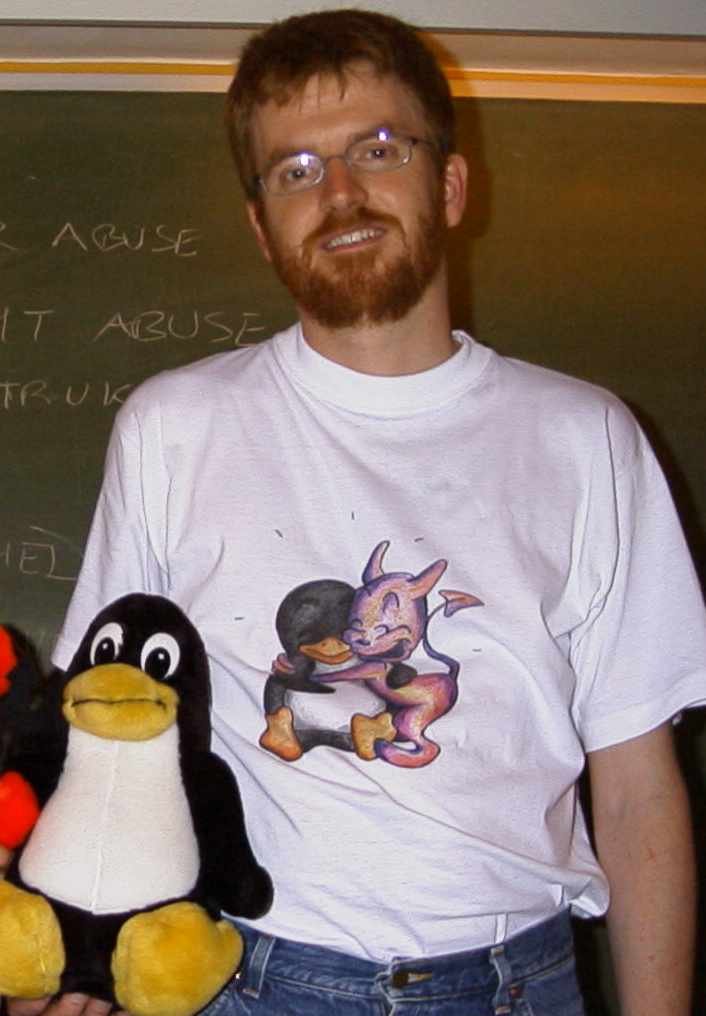|
Free And Open-source Software Licenses
This comparison only covers software licenses which have a linked Wikipedia article for details and which are approved by at least one of the following expert groups: the Free Software Foundation, the Open Source Initiative, the Debian Project and the Fedora Project. For a list of licenses not specifically intended for software, see List of free-content licences. FOSS licenses FOSS stands for "Free and Open Source Software". There is no one universally agreed-upon definition of FOSS software and various groups maintain approved lists of licenses. The Open Source Initiative (OSI) is one such organization keeping a list of open-source licenses.Open source licenses - Licenses by Name on opensource.org The |
Software License
A software license is a legal instrument (usually by way of contract law, with or without printed material) governing the use or redistribution of software. Under United States copyright law, all software is copyright protected, in both source code and object code forms, unless that software was developed by the United States Government, in which case it cannot be copyrighted. Authors of copyrighted software can donate their software to the public domain, in which case it is also not covered by copyright and, as a result, cannot be licensed. A typical software license grants the licensee, typically an end-user, permission to use one or more copies of software in ways where such a use would otherwise potentially constitute copyright infringement of the software owner's exclusive rights under copyright. Software licenses and copyright law Most distributed software can be categorized according to its license type (see table). Two common categories for software under cop ... [...More Info...] [...Related Items...] OR: [Wikipedia] [Google] [Baidu] |
Permissive Software License
A permissive software license, sometimes also called BSD-like or BSD-style license, is a free-software license which instead of copyleft protections, carries only minimal restrictions on how the software can be used, modified, and redistributed, usually including a warranty disclaimer. Examples include the GNU All-permissive License, MIT License, BSD licenses, Apple Public Source License and Apache license. the most popular free-software license is the permissive MIT license. Example The following is the full text of the simple GNU All-permissive License: Definitions The Open Source Initiative defines a permissive software license as a "non-copyleft license that guarantees the freedoms to use, modify and redistribute". GitHub's ''choosealicense'' website describes the permissive MIT license as " ettingpeople do anything they want with your code as long as they provide attribution back to you and don’t hold you liable." California Western School of Law's newmedi ... [...More Info...] [...Related Items...] OR: [Wikipedia] [Google] [Baidu] |
Poul-Henning Kamp
Poul-Henning Kamp (; born 1966) is a Danish computer software developer known for work on various projects including FreeBSD and Varnish. He currently resides in Slagelse, Denmark. Involvement in the FreeBSD project Poul-Henning Kamp has been committing to the FreeBSD project for most of its duration. He is responsible for the widely used MD5crypt implementation of the MD5 password hash algorithm, a vast quantity of systems code including the FreeBSD GEOM storage layer, GBDE cryptographic storage transform, part of the UFS2 file system implementation, FreeBSD Jails, malloc library, and the FreeBSD and NTP timecounters code. Varnish cache He is the lead architect and developer for the open source Varnish cache project, an HTTP accelerator. Dispute with D-Link In 2006, Kamp had a dispute with electronics manufacturer D-Link in which he claimed they were committing NTP vandalism by embedding the IP address of his NTP servers in their routers. The dispute was resolved ... [...More Info...] [...Related Items...] OR: [Wikipedia] [Google] [Baidu] |
Beerware
Beerware is a tongue-in-cheek term for software released under a very relaxed license (beerware licensed software). It provides the end user with the right to use a particular program (or do anything else with the source code). Description Should the user of the product meet the author and consider the software useful, they are encouraged to either buy the author a beer "in return" or drink one themselves. The Fedora project and Humanitarian-FOSS project at Trinity College recognized the ''"version 42"'' beerware license variant as extremely permissive "copyright only" license, and consider it as GPL compatible. the Free Software Foundation does not mention this license explicitly, but its list of licenses contains an entry for informal licenses, which are listed as free, non-copyleft, and GPL-compatible. However, the FSF recommends the use of more detailed licenses over informal ones. Many variations on the beerware model have been created. Poul-Henning Kamp's beerware lic ... [...More Info...] [...Related Items...] OR: [Wikipedia] [Google] [Baidu] |
Larry Wall
Larry Arnold Wall (born September 27, 1954) is an American computer programmer and author. He created the Perl programming language. Personal life Wall grew up in Los Angeles and then Bremerton, Washington, before starting higher education at Seattle Pacific University in 1976, majoring in chemistry and music and later pre-medicine with a hiatus of several years working in the university's computing center before graduating with a bachelor's degree in Natural and Artificial Languages. While in graduate school at the University of California, Berkeley, Wall and his wife were studying linguistics with the intention of finding an unwritten language, perhaps in Africa, and creating a writing system for it. They would then use this new writing system to translate various texts into the language, among them the Bible. Due to health reasons these plans were cancelled, and they remained in the United States, where Wall instead joined the NASA Jet Propulsion Laboratory after he fini ... [...More Info...] [...Related Items...] OR: [Wikipedia] [Google] [Baidu] |
Artistic License Artistic license (alongside more contextually-specific derivative terms such as poetic license, historical license, dramatic license, and narrative license) |
